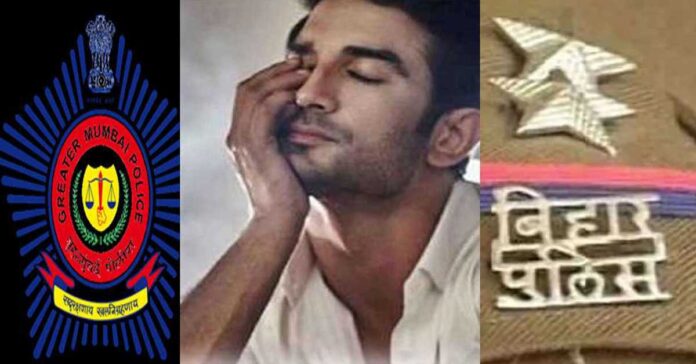The Supreme Court observed that the Mumbai Police has attempted to stretch the attention of Section 174 without drawing up an FIR.
The Supreme Court of India passed an order on the Sushant Singh Rajput death case in which the probe is now transferred from Mumbai Police to the CBI. The Supreme Court also accepted the claim of Bihar Police against Rhea Chakraborty. So where did Mumbai Police go wrong and how did Bihar manage to convince the Court of the validity of its jurisdiction? Here’s an explainer.
Mumbai Police Had Not Commenced Their Investigation In The Pure Legal Sense
Under CrPC, Section 157 deals with the procedure of investigation. Now, according to Section 157(1) of the CrPC, as the first step of the investigation, the police officer, if he has a strong reason to suspect an offence in a case has to send a report of the same to a Magistrate empowered to take cognizance of such offence. They didn’t send any investigation report regarding Sushant’s case to magistrate. In the year of 1975 on 11 February the Supreme Court of India had explained the powers the police officer has the power to investigate under three cases, namely
(a) Where first information under Section 154 is received relating to the commission of a cognizable offence;
(b) Where information is received, under Section 155 relating to the commission of a non-cognisable offence and an order for investigation in respect thereof has been obtained from the competent Magistrate
(c) Where information is received of suicide or as to the killing of a person by another or by an animal or by machinery or by accident or having died under circumstances raising a suspicion that an offence has been committed. Such an investigation is primarily directed to ascertain the cause of death, falls under Section 174, and is called inquest.
The Mumbai Police, in this case, was empowered to act under the third case, which is Section 174 of the CrPC.
The Mumbai Police “Stretched The Purview Of Section 174” By Not Filing FIR
The Supreme Court in its order observed that the Mumbai Police had claimed that it has been investigating the case under Section 174 and Section 175 of the CrPC.While Section 175 gives summoning power to the police, Section 174 gives the police power to report and enquires on cases of accidental deaths or suicide.
But they stretched the attention of Section 174 without drawing up an FIR.
Now, in the present case, the post mortem report of Sushant Singh Rajput was known to the police around 24 or 25 June. The police, however, continued to summon people till late July, without filing an FIR as per precedent. This is the reason that the Supreme Court had to point out that the police had erred by not filing a report or a closure. What the Mumbai police had to do post the Autopsy report is to file an FIR with the charge of abetment, if it felt that there was more to the case.
How Bihar Won The Jurisdictional Battle
The Supreme Court, in its order also accepted the validity of Bihar police’s FIR and its jurisdiction to investigate the case in Mumbai. For this the Supreme Court went into the primary interpretation of Section 178 and Section 181 of the CrPC. The Supreme Court validated the jurisdiction in a step by step basis.
- First, the Supreme Court concluded that since the allegations made were that of a cognizable offence, the Patna Police were bound to file an FIR.
- Secondly, the Supreme Court went into the interpretation of Section 178 of the CrPC which deals with finding the place of enquiry when there are multiple “local areas” where the offence is committed. The court cited the precedent of the Satvinder Kaur v State (Govt of NCT of Delhi) case, where the Supreme Court interpreted Section 178 and said that at the stage of investigation, the SHO have territorial authority to investigate the crime. Now, since the case was still in the stage of investigation, it will be wrong to declare that the Bihar Police does not have a jurisdiction
- Thirdly, the Supreme Court dived into Section 181(4) of the CrPC which deals with the place of enquiry in case of allegations of criminal misappropriation or breach of trust. The text of the section says that such an offence is to be tried by a Court within whose local jurisdiction the offence was committed or was required to be returned or accounted for, by the accused person.
ALSO READ: Can the CBI crack the highly complicated death case of SSR


